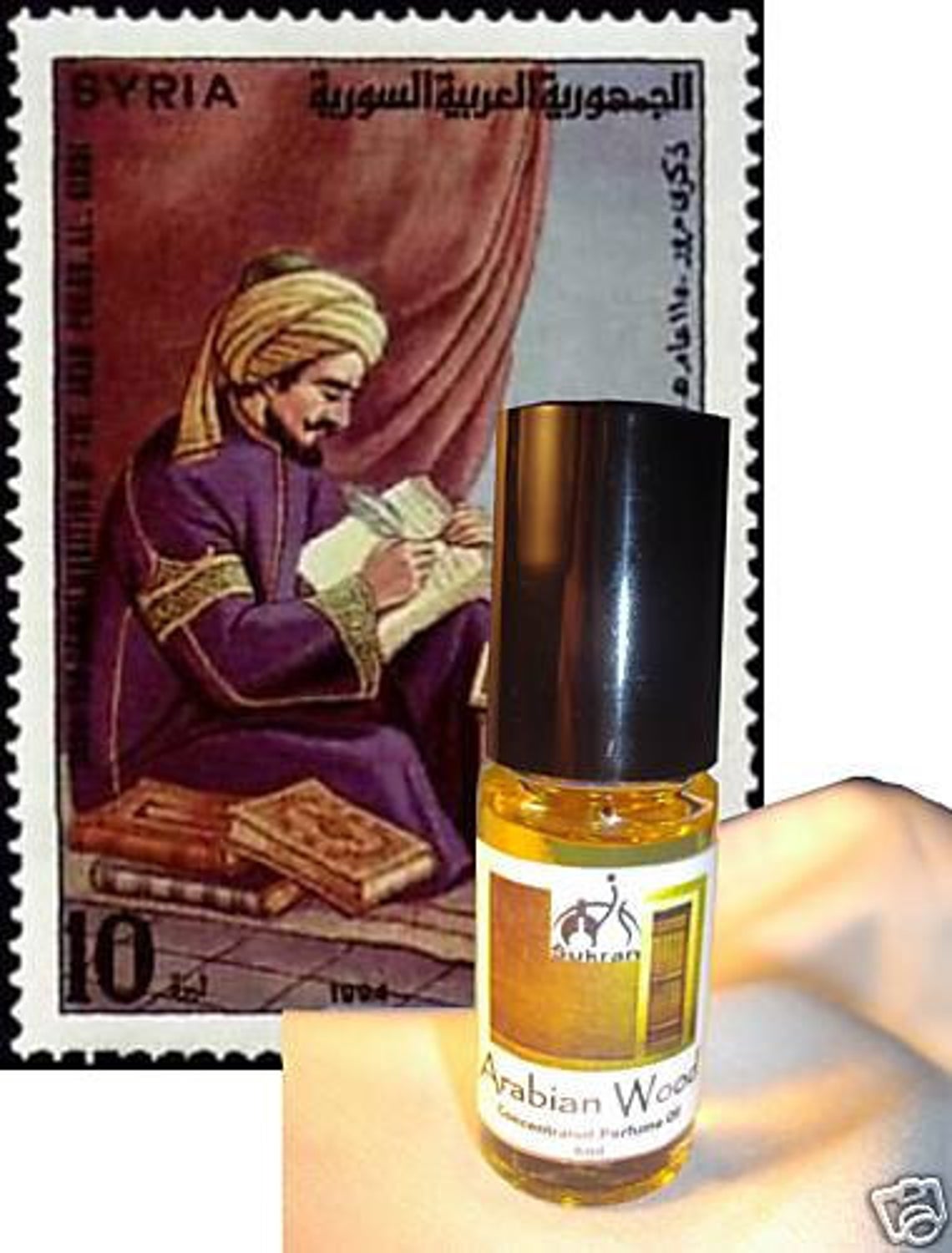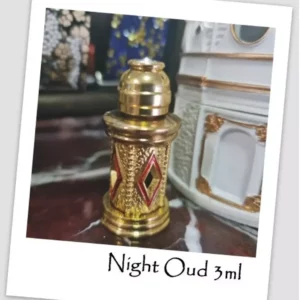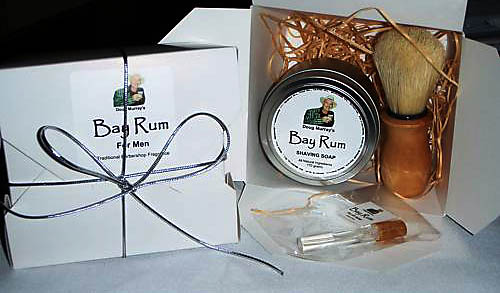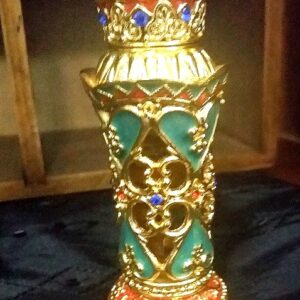Description
Oriental mix of timelessly masculine notes Woody, spicy, sweet and floral, all at the same time, without any one note struggling for dominance Superbly balanced fragrance for men with long lasting agarwood base notes
Top Notes Bergamot, Clary Sage, Lavender, Rosewood .
Middle Notes Muguet, Rose, Jasmin, Geranium
Base Notes Agarwood, Sandal, Amber, Cedar, Patchouli, Vanilla.
One of my all-time favourites. Balanced, classic, well-blended, and above all, engaging to those around. Let me say that lavender, rosewood, and clary sage make a beautiful opening accord. The florals in the middle notes are also a classic accord of rose, jasmine, and geranium, but with an extraordinary muguet note which lifts them into something far less predictable. Spicy coumarin, warm woods, and vanilla in the base make a gracious underpinning. Once the smooth ambery, musky notes settle, you are left with incredibly wonderful agarwood oudh which lingers on your skin for a long time.
History of Perfume – Arabian Perfumes
Considering that most popular ingredients for the manufacture of perfume were found primarily around the Arabian Peninsula, it is not surprising that Islamic cultures contributed significantly to this industry. Arabs inherited most of the ancient perfumery knowledge and took it to the next level. There was much trade within Arabia, bringing perfumes from Baghdad to Muslim Spain. Arabian perfume arts were very highly developed; having learnt much from the Persians, they used ingredients from China, India and Africa, producing perfumes on a large scale.
The Muslims were using the distillation process, which revolutionised perfume production, since the 9th Century. Al-Kindi (c. 801–873 CE – also known as Alkindus in the west), a Muslim Arab philosopher and scientist, is considered by many as the father of the modern perfume industry. He is known for his work in isolating alcohol and was the first to describe the production of pure distilled alcohol. Al-Kindi invented many different scents by experimentally combining different plants and other materials to produce perfume products. One of his books, the Kitab Kimiya’ al-‘Itr (Book of the Chemistry of Perfume) contains recipes for fragrant oils, salves and aromatic perfume water. The development of distillation in the 9th century brought the production of essential oils and scented waters to the new level.
Another development by the islamic world was in the production of cosmetics. Al-Hawi, a book by Rhazes, who lived in the late 9th or early 10th century, contained a chapter on cosmetics that was later translated into Latin in France in the late 12th century. The process of distilling in order to abstract essential oils and fragrances was perfected by Avicenna, around the 11th century.
During the islamic golden age, the trade in perfumes was so high that it accounted up-to 20% of empires total trade revenue. Arab merchants were reaching the furtherest places and along with other wonders of Asia they were bringing fragrances, essential oils, incense, aromatic moisturizers and powders. Musk and floral perfumes were brought to northwest Europe in the 11th and 12th centuries through trade with the Islamic world.
In London, there are records of the Pepperers Guild of London which go back to 1179 and records from Edward 1 which show that spices, perfume ingredients, dyes and aromatic exotic materials sourced from the islamic world were being traded in England. Venice was an important center for trade between the west and the east, and became the main channel through which the raw materials for incense and perfume reached Europe. It continued to play a primary role in the industry, within Europe, for a few hundred years.
While distillation was already known in the 11th century (from the Islamic world), many European scientists did not become fascinated with the process until around the 13th and 14th century. After they learnt this activity, the perfume industry in Europe benefited and the fragrance production center of Grasse, in the south of France, began to develop
Some examples of early perfume ingredients made available through trade
Aloewood Introduced into Europe by Arabs in 8th century and spread rapidly. It is an aromatic heartwood from an evergreen tree obtained by the Arabs from China, Assam, Malaysia which produces a fragrant oil when diseased. Became an important ingredient in Europe for pomanders (as oil) and pot pourri (dried).
Ambergris Sperm whale excretion (‘though this origin was unknown for a very long time) found on the Indian Ocean coast. Used since early Arabian times (6th century)
Apricot kernels oil Extract frequently used in early Arabian perfumes Ben Oil From seeds of the Moringa tree native to North India frequently used as a base in early Arabian perfumes
Camphor Crystals formed from oil extracted from wood; very frequently used in early Arabian perfumes
Gum arabic Gum extruded by Acacia trees; dried and used in incense; used in early Arabian perfumes
Jasmine Leaves, flowers and oils; commonly used in early Arabian perfumes
Labdanum Resin secreted by Cistus (Rock Rose) species. Popularly collected by combing it from the beards of goats; used in early Arabian perfumes and later in European Pomanders
Musk Glandular secretion from musk deer; very frequently used in early Arabian perfumes
Rosewater (also Attar of Roses) Made by a distillation process from rose petals in water. Attar (essential oil) obtained by redistillation of rosewater. Very popular in Arabia
Saffron Dried stigmas of crocus and oil from these; culinary and perfume use; very important in Arabian perfumery
Sandalwood Oil from the heartwood of a tree; fragrance and fixative
Reference: History of Perfume, Frances Kennett, George G Harrap & Co; London WC1V 7AX; 1975. ISBN 0 245 52135 6
This Sale is for 6ml size. Just a little of this fragrance goes a long way – you just need one drop It comes in a small and very handy sized 10ml bottle with a roll on dispenser. You can throw it in your bag, take it anywhere and never worry about the contents spilling.
It is 100% pure CONCENTRATED perfume oil and will not evaporate or deteriorate over time. At this price, you will want to buy more to share it with your friends as a great gift!
Buy it – Try it – If you do not love this perfume I will give you your money back – 100% satisfaction guaranteed
Check out my other items!
You can also try the other fragrances which I have for sale and combine the postage to save money






Reviews
There are no reviews yet.